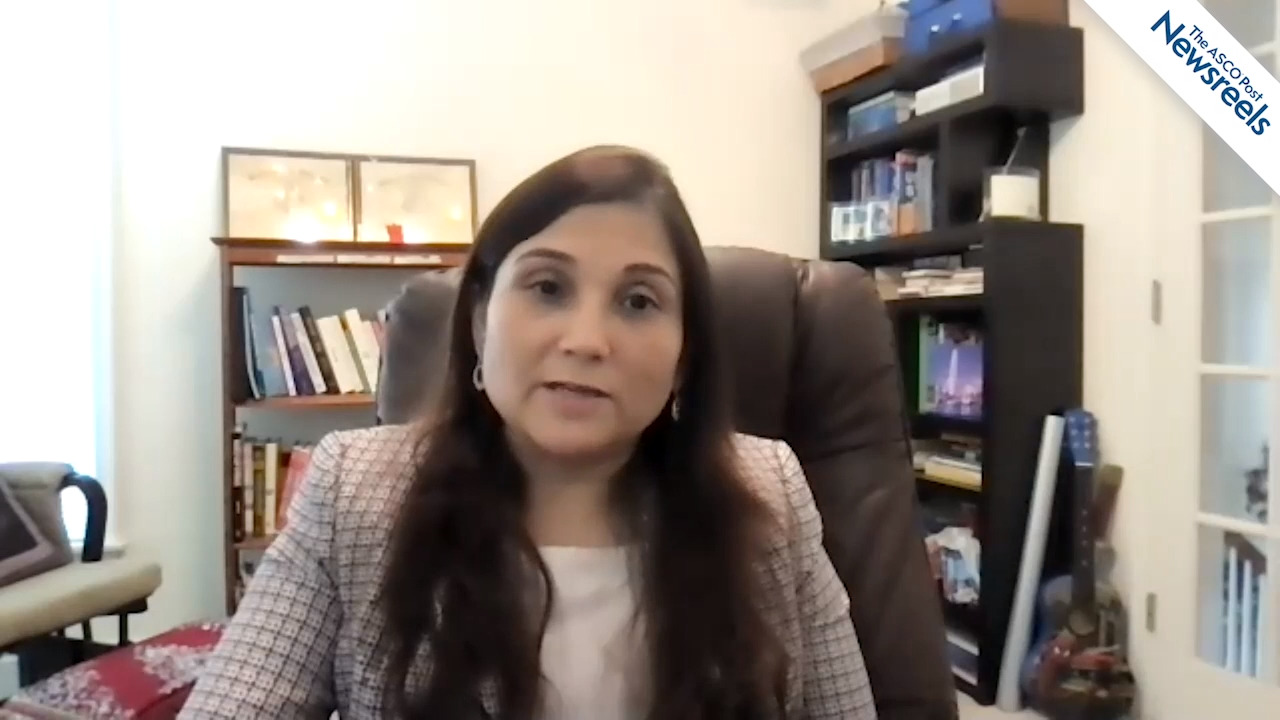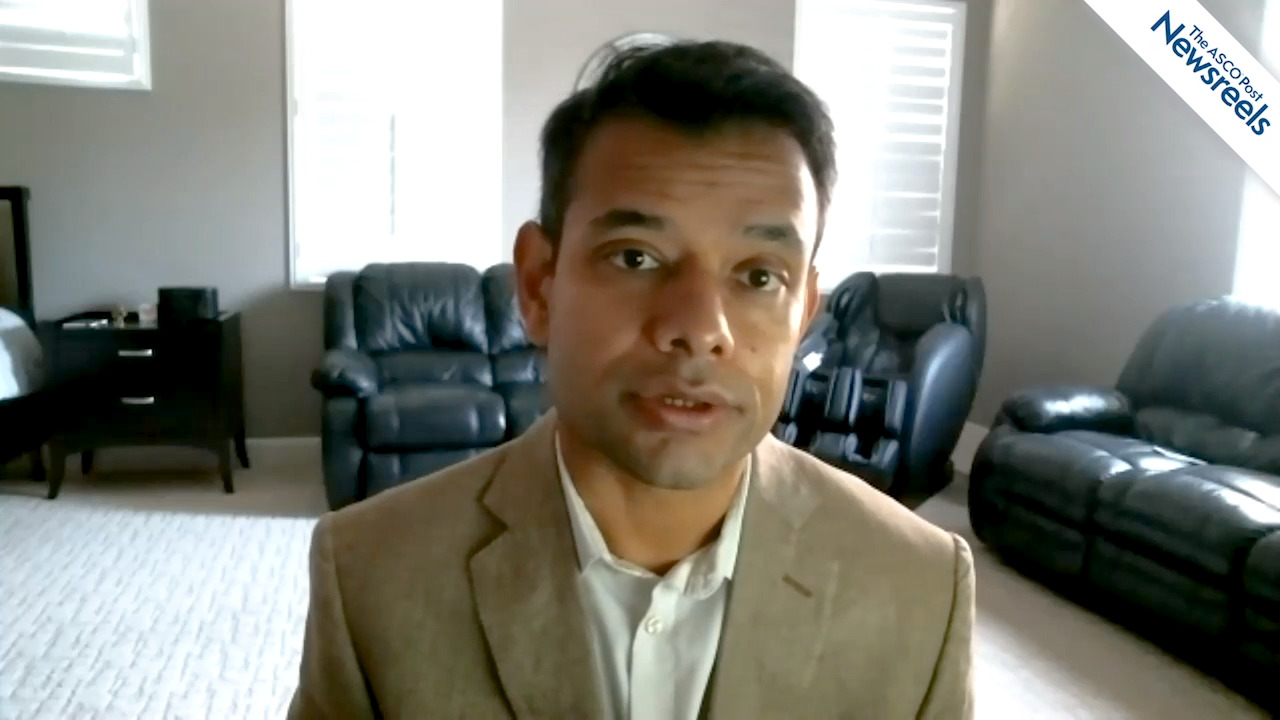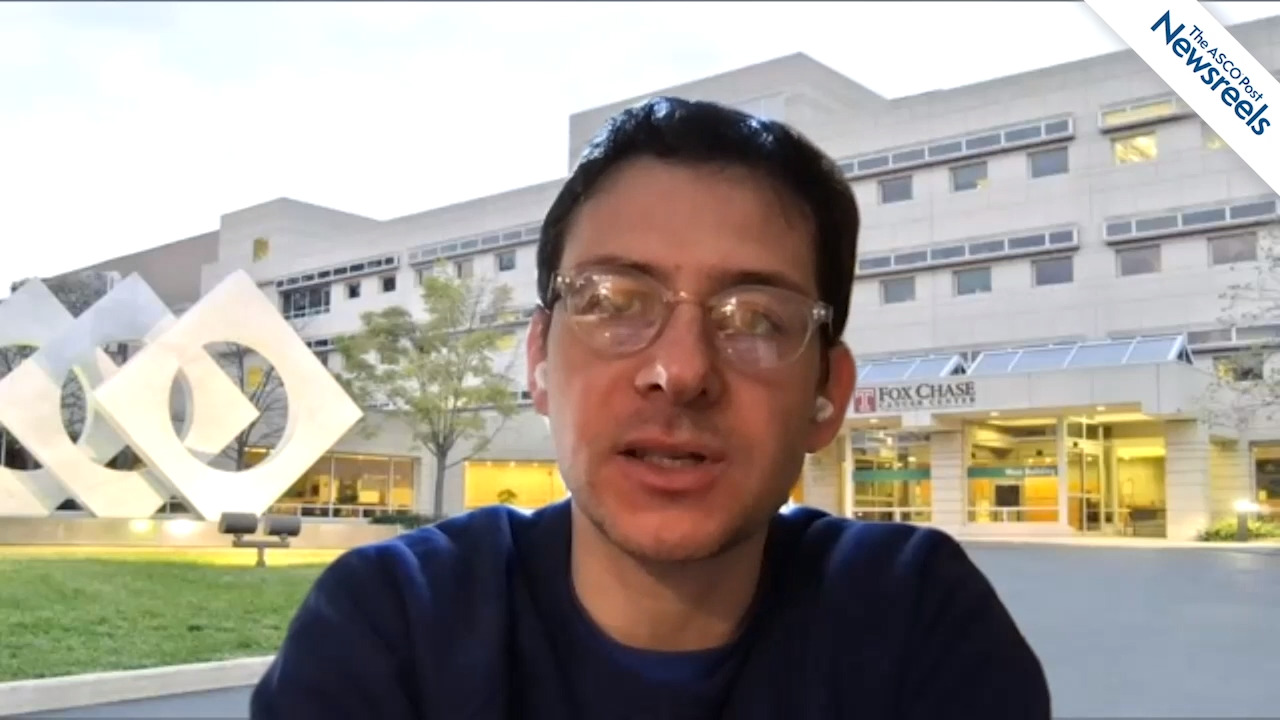Thomas Powles, MD, PhD, on Urothelial Carcinoma: Enfortumab Vedotin-ejfv vs Chemotherapy
2021 Genitourinary Cancers Symposium
Thomas Powles, MD, PhD, of Cancer Research UK Barts Centre, discusses phase III results from the EV-301 trial, which showed that enfortumab vedotin is the first therapy to demonstrate a significant survival advantage over standard chemotherapy in patients with previously treated locally advanced or metastatic urothelial carcinoma (Abstract 393).
The ASCO Post Staff
Monika Joshi, MD, of Penn State Hershey Cancer Institute, discusses phase II results from the DUART study, which explored the efficacy of concurrent durvalumab, a checkpoint inhibitor, and radiation therapy followed by adjuvant durvalumab in patients with localized urothelial cancer of the bladder (Abstract 398).
The ASCO Post Staff
Elizabeth R. Plimack, MD, of Fox Chase Cancer Center, discusses key abstracts discussed at this year’s meeting on bladder cancer and offers her views on the latest trends and findings (Abstracts 391, 393, 434).
The ASCO Post Staff
Sumanta K. Pal, MD, of City of Hope, discusses phase II results from the SWOG 1500 study, which showed that compared with crizotinib and savolitinib, cabozantinib was the only agent that prolonged progression-free survival vs sunitinib in patients with metastatic papillary renal cell carcinoma (Abstract 270).
The ASCO Post Staff
A spirited discussion ensued when we asked Christopher Sweeney, MBBS, of Dana-Farber Cancer Institute, and Thomas Powles, MD, PhD, of Cancer Research UK Barts Centre, to compare notes on how they treat bladder, prostate, and kidney cancers.
The ASCO Post Staff
Daniel M. Geynisman, MD, of Fox Chase Cancer Center, discusses phase II results from the RETAIN BLADDER study, which sequenced bladder tumor samples while treating patients with neoadjuvant methotrexate, vinblastine, doxorubicin, and cisplatin chemotherapy. The goal was to increase metastasis-free survival and also preserve the bladder and quality of life (Abstract 397).





